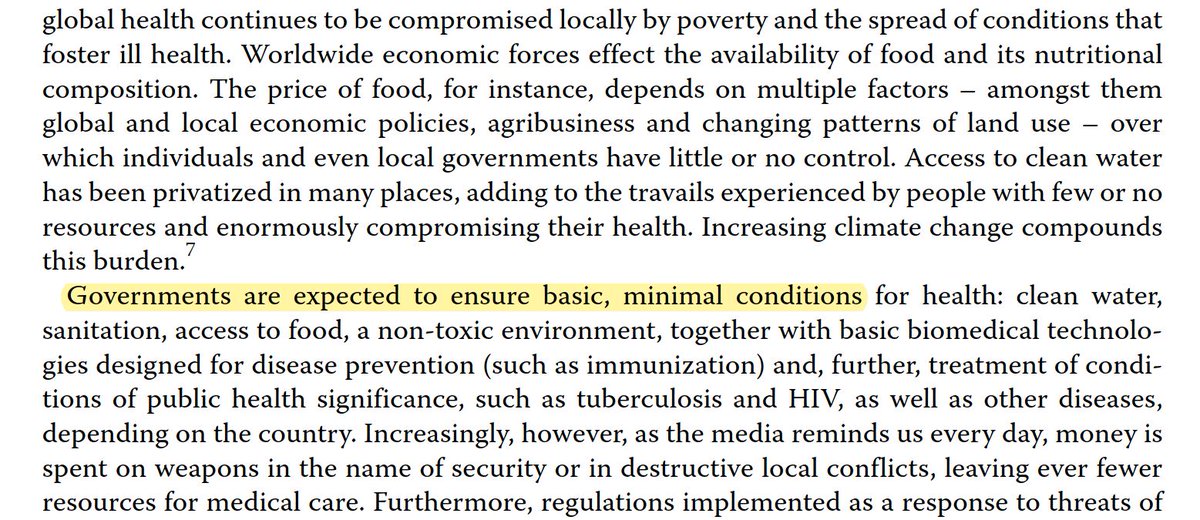
This is re. the apparent enthusiasm of some doctors for the Union govt's Digital Health ID project. I learnt about this enthusiasm from ppl's responses to @SonaliVaid's tweet yday, including the unfortunate trolling.
It seems that many doctors, when thinking about larger public health issues, simply extrapolate from their narrow clinical experiences, rather than taking into account social, economical, political factors. That is, the larger universe beyond the hospital.
Eg, some of the comments were like, Without digitisation, how can we manage records of our increasing population? This kind of concern seems to stem from what all of us doctors have experienced: patients often losing or not possessing imp paper records
Sure, as a doctor one can provide, on average, more efficient (i wont say "better") care with such digital record-keeping.
But why do we think the only/best way to achieve that = a hasty "National" ID, with a billion records placed at a single central (& leaky) database?
But why do we think the only/best way to achieve that = a hasty "National" ID, with a billion records placed at a single central (& leaky) database?
That is, ther r many ways to digitize select health records, by learning from best practices around the globe, rather than following the bhakt practices of blindly trusting everything the Indian govt claims. Have we learnt nothin in 7 years? (thats more than MBBS duration btw)
Plus, what evidence do we have that the Union govt machinery even has the capacity and will to manage digital records (& provide Internet services) in a way that will be actively useful to practitioners? Not to mention the data breaches and corruption which will inevitably ensue
More importantly, how many of our patients have actively demanded a digital ID? As against affordable medicines and surgery, or clean and regular water supply? Or respectful, non-yelling care?
When there r so many other grassroots demands pending, what gives the medical & political elite the right to create a completely new and artificial demand for a billion ppl? That too simply on the basis of what they seem to like, irrespective of its relative usefulness.
Besides, when the Union govt wanted to displace blame for Covid to non-bjp states, it constantly harped on how health is a state subject. Is that no longer d case? Have ALL state govts in India demanded a single "national" digital ID?
If one critiques this digitization obsession by mentioning the other more urgent, pending healthcare demands, many supporters say that a digital ID will help in solving most of these other public health issues. That is perhaps the most absurd argument.
What evidence do we have for that? Are there any other countries which have achieved stellar public health & individual health outcomes because they embarked on Digital Missions? What about the better states like KL & TN? Does their experience show that Digital IDs are essential?
Is there a well-reasoned, logical, non-fantastical set of arguments which can plausibly connect digital health IDs to, say, reduced child mortality, or increased healthy life expectancy, or reduced diabetes incidence?
Doesn't Occam's razor suggest that there are much simpler explanations for this govt's obsession with digitisation? Like crony capitalism and scary surveillance?
https://twitter.com/digitaldutta/status/1392042368895897600
Basically, as long as we dont develop a digital ID which will also magically create money on the side for the poor ppl who will be forced to carry it, no major public health issue is gonna be solved. Such claims r just खयाली पुलाव, or हवा में तीर
To put it in other words, the Indian govt's so-called Digital Health Mission will be as effective in improving people's health as demonetisation was in eradicating corruption and Aarogya Setu was in keeping Covid in check.
My request to docs is to start reading more and expand their horizons. It provides such fresh perspectives. Healthcare is vast, and biomedical management is only one part of it (often only a small part).
[Excerpt from Lock & Nguyen's 'An Anthropology of Biomedicine.']
[Excerpt from Lock & Nguyen's 'An Anthropology of Biomedicine.']

For answers to some of the good questions which some decent folks asked on this thread, do read this. And also, without fail, follow @roadscholarz
https://twitter.com/roadscholarz/status/1442703297899483139
• • •
Missing some Tweet in this thread? You can try to
force a refresh





